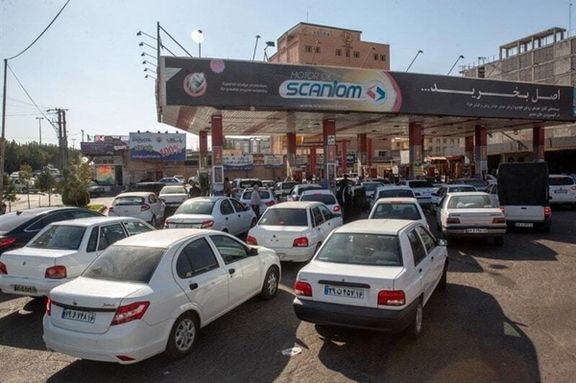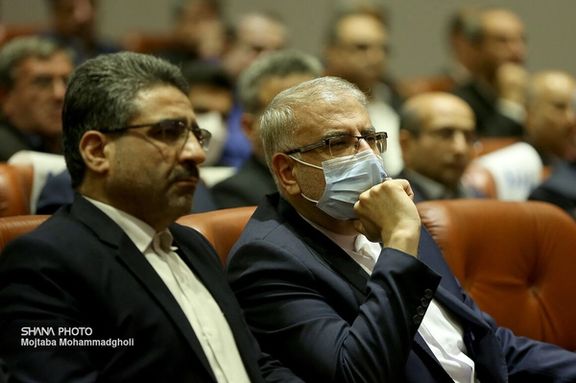Iran Using Strategic Gasoline Reserves As Consumption Hits Record

In response to a large gap between gasoline production and consumption, Iran has scaled back its distribution and turned to using its strategic reserves.

In response to a large gap between gasoline production and consumption, Iran has scaled back its distribution and turned to using its strategic reserves.
According to Iran International sources, the Iranian Oil Ministry has taken the step citing the need to curb smuggling. The other option would be to raise prices but the regime is worried that it could trigger protests across the nation.
The National Iranian Oil Refining and Distribution Company (NIORDC), a department within the ministry, has released around 900 million liters of strategic gasoline reserves into the market in an effort to make up the deficit. An informed source disclosed that the country's reserves now stand at approximately 500 million liters, barely enough for more than four days in the event of any production-related disruptions.
The source added that there are challenges for gasoline imports both domestically and internationally, leading to a consistent reduction of gasoline distribution in various regions of the country.

Both Oil Minister Javad Owji and NIORDC Manager Ali-Akbar Nejadali have confirmed the supply restriction. Nejadali explained that in light of increased summer travel and to ensure a steady distribution and prevent station closures, a new measure has been introduced, limiting each refueling session to only 30 to 40 liters.
Iran International reported in late July that the government has postponed tighter fuel rationing implementation due to the approaching anniversary of last year's anti-regime protests in September.
Earlier in the month, NIORDC deputy manager Ali Ziyar said that the average daily consumption of gasoline has hit 124 million liters, indicating a 20-percent increase compared with the previous year. “In recent years, the maximum annual growth in gasoline consumption has been seven percent, but this year we have suddenly experienced a 20 percent increase in consumption,” he said, tacitly acknowledging that a large amount of fuel is being smuggled out of the country. He also stated that the daily gap between production and consumption is 17 million liters.
The government, which controls one of the world's largest oil and gas reserves, sells gasoline at extremely low, subsidized prices, charging less than 10 US cents per gallon, or less than 3 cents per liter, while neighboring oil-producers have much higher prices, in line with international market rates. Second only to Venezuela, Iran has the world’s cheapest gasoline price. The extremely low fuel prices leads to small and large-scale smuggling to neighboring countries.
Back in March, Iran International unveiled a classified document detailing a late February meeting at the presidential office. This document revealed that dangerously low levels of strategic fuel reserves forced major refinery repairs to be postponed to maximize short-term production. Officials were advised to avoid any public statements or suggestions that could be construed as intentions to raise current fuel prices, fearing it might ignite public discontent.
One of the main reasons that the Islamic Republic has not managed to increase prices in the midst of the current economic crisis is because it faced the worst wave of unrest in years since September 2022. A fuel price hike would risk fanning the flames of unrest further. For years there has been talk of adjusting prices, but since 2018 Iran’s currency has dropped 12-fold and any increase needs to be huge to be meaningful in US dollars.
In November 2019, a government decision to increase fuel prices by 50–200 percent triggered a cycle of protests and unrest across the country that lasted for over two weeks. Regime forces killed at least 1,500 civilians, in the worst such crackdown in Iran.
While the country is hugely dependent on the revenues from crude oil exports, due to sanctions and mismanagement, it has failed to modernize the energy sector, with power shortages persisting most of the year. Systemic corruption also further cripples the weak system. The situation has been grave in recent years but since the administration of Ebrahim Raisi assumed office in 2021, the entire energy management system is going haywire, drawing backlash from not only the public but even regime insiders.
In recent days, rumors of an impending gasoline price increase have once again ignited, prompting a rush of people to gas stations.